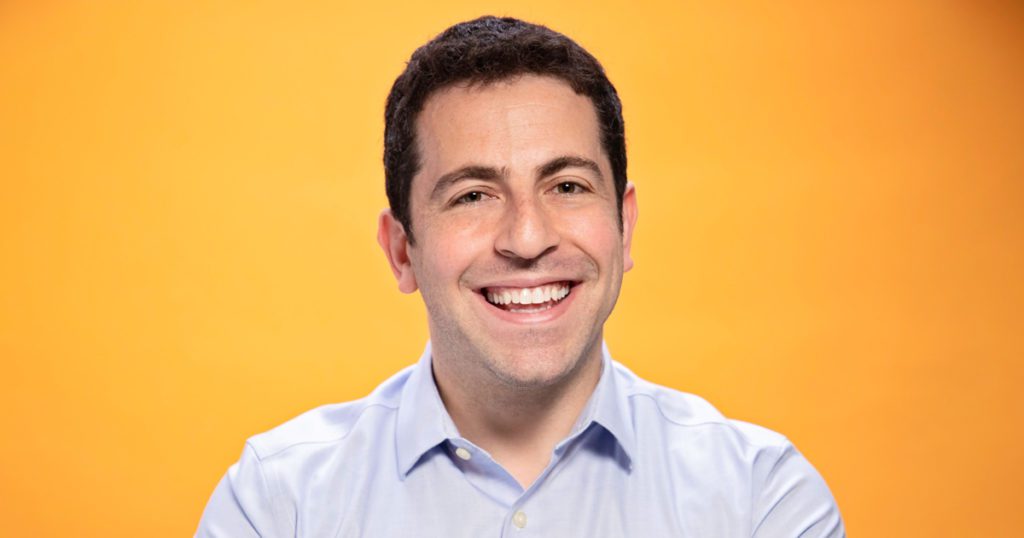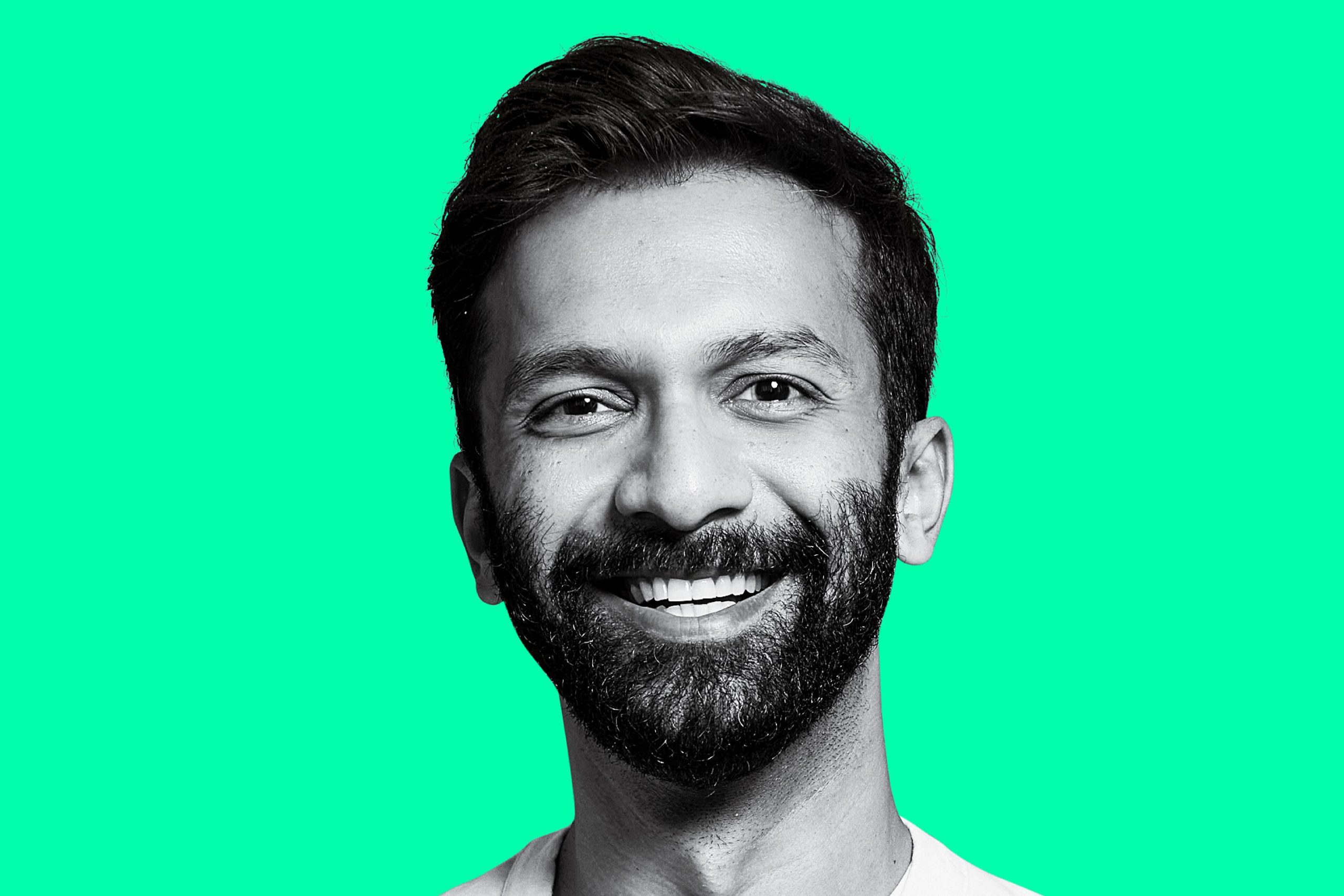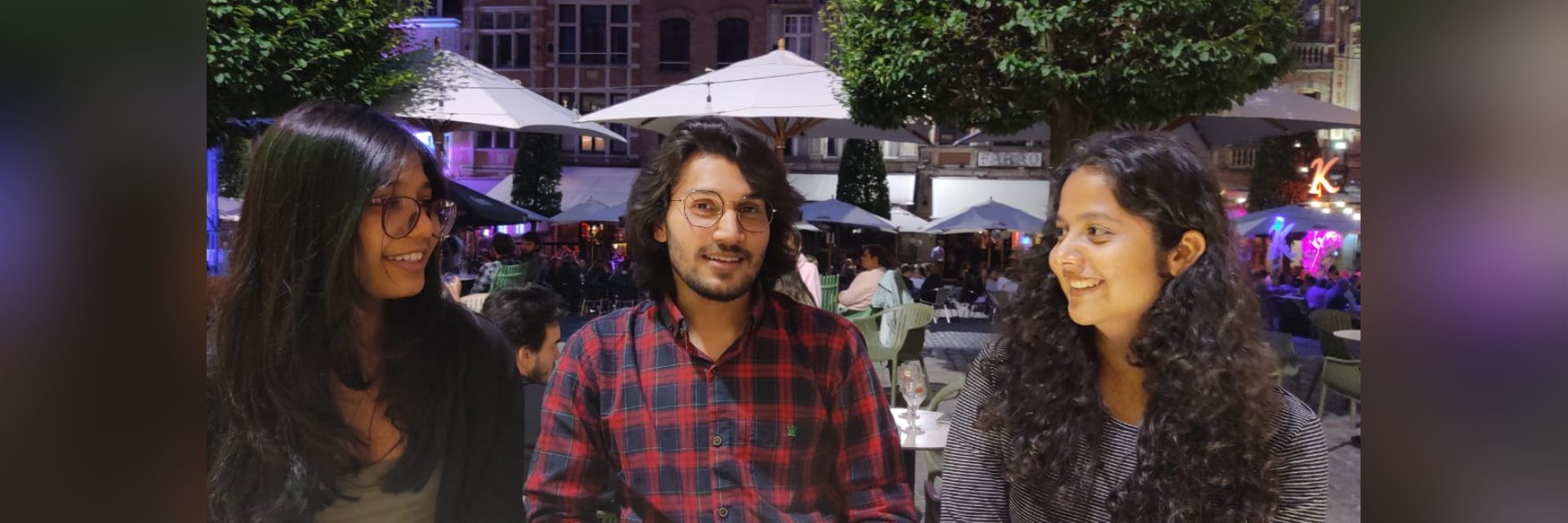(October 15, 2021) Did you know that lesbian, gay and bisexual youth are four times more likely to consider suicide when compared to their straight peers? A startling statistic, but not all that startling compared to the abuse and ostracization a lot of them continue to face… at the hands of society and their own families. The Trevor Project in the US has been working to help the LGTBQ community and prevent suicide among queer people through a dedicated hotline since 1998. Helming it is its dynamic 39-year-old Indian American CEO Amit Paley.
Since he took over in 2017, the nonprofit organization has seen a dramatic increase in the number of young people receiving much-needed support. Amit has been using a healthy mix of technology, innovation and research to help create awareness about mental health in the LGBTQ community. This Indian American also serves on the National Suicide Prevention Lifeline steering committee and the executive committee of the National Action Alliance for Suicide Prevention. As he forges ahead in the mental health space and advocated for the LGBTQ youth, Amit finds himself in the 2021 Fortune 40 Under 40 list — one of the four Indian Americans on the list this year — for the impact he’s been creating through his work.
Check out and share @TrevorProject's Coming Out Handbook – you never know who's exploring what coming out can mean for them. https://t.co/Hr5GKzpiPK https://t.co/wWpV1TpBfd
— Amit Paley (@amitpaley) October 11, 2021
Experience talks
Born in 1982 in a mixed-race family in the US, Amit grew up in Waban, Massachusetts where he attended Solomon Schechter Day School of Greater Boston and The Roxbury Latin School. Growing up, he had to battle his own demons. It was a time when anti-gay sentiments were still pretty high in America and the world and Amit had no idea how to express his identity. He grew up as a lonely, scared, closeted kid, who’d never known anyone who was openly LGBTQ. He’d never really hoped to gain acceptance for who he really was. In fact, when he got married in 2019, he’d tweeted, “I grew up as a closeted, lonely, scared kid who didn’t know anyone who was openly LGBTQ. I never dreamed that one day I would find a man who would love me, that we could be legally married, & that my family & friends would come celebrate us, not shun us, at our wedding.”

Amit Paley with his husband Jonathan Naymark
For this Global Indian to reach this place of confidence and happiness was a long and arduous journey. He finally found his voice and came out as gay when he was an undergraduate student at Harvard University where he studied Social Studies and East Asian Studies. Soon after he graduated from magna cum laud from Harvard, he began his professional career with The Washington Post where he reported on the Iraq war and the 2008 financial crisis. He quit his job in 2009 when he was awarded fellowships at Columbia Journalism School and Columbia Business School from where he went on to graduate in the Dean’s Honors List with an MBA and MS in Journalism.
Making inclusion important
Upon his graduation in 2011 he joined McKinsey & Company in New York as an Associate Partner while also serving as an adjunct professor CUNY Graduate School of Journalism. It was also around this time that he first began volunteering as a counselor with The Trevor Project, one of the largest organizations in the world dedicated to suicide prevention in the LGBTQ youth. Despite his busy day job, Amit would man the 24-hour TrevorLifeline, taking up the night shifts and weekend phone lines. Eventually, he joined its board which gave him exposure to the operational and financial challenges of such groups and inspired him to get more involved in McKinsey’s nonprofit work, he served as a leader of McKinsey’s LGBTQ group and spearheaded the firm’s global efforts on inclusion for transgender and nonbinary people.

At Trevor Project, he has answered hundreds of calls from LGBTQ youth in crisis. By 2017, Amit was appointed The Trevor Project’s CEO, making him the first volunteer counselor to become the organization’s CEO… and he still continues to answer calls on the TrevorLifeline. Talking about going that extra mile outside of his regular job, Amit said in an interview, “By investing my time outside work in things I was passionate about, I learned things that made me better at my job. Those experiences also prepared me for future leadership roles that I didn’t know I would have.”
The Trevor Project takes advocacy seriously at the government level and is working to end conversion therapy, oppose anti-transgender legislation and establish 988 as the number Americans can call on to reach their suicide prevention lifeline. The fact that many LGBTQ youth are also homeless in America makes their mental health that much more precarious and the situation has only worsened since the pandemic broke out in 2020. Taking cognizance of the situation, Amit has taken The Trevor Project entirely remote for the first time ever in order to deal with the call volumes which had doubled when compared to the pre-pandemic levels.
Awards and more
Under Amit’s leadership, Trevor Project has dramatically expanded the number of LGBTQ youth that it helps. The organization has also built and launched a new, integrated crisis services platform, expanded its chat and text services and has more than quadrupled the number of youths it has reached out to every month.
His voice has been featured across major publications and channels such as The New York Times, The Washington Post, CBS, Reuters, and Fortune among others. He has also received several awards and accolades for his leadership. From being featured in Fortune’s 40 Under 40 list for 2021, to World Economic Forum’s Young Global Leader, NBC’s #Pride 50, and Crain’s 40 Under 40, he’s come a long way from being the scared and lonely teen in his school days.
Follow Amit Paley on Twitter and LinkedIn



